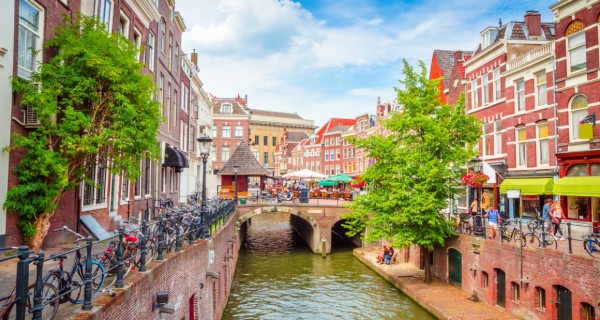An alternative way of acquiring Dutch citizenship

It is commonly known that foreign nationals can, after five years of residence in the Netherlands, apply for Dutch citizenship through naturalisation. The procedure for naturalisation is complex: not only do applicants need to fulfil conditions such as continuous residence, a principal habitual address in the Netherlands, the passing of the civil integration exam and so on, they may also have to wait up to a year before receiving a result. There is, however, another way to obtain Dutch citizenship besides naturalisation; namely, the ‘option’ procedure (in Dutch: optie). Option could be regarded as an expedited naturalisation, whereby the application is processed by the municipality (the city where you live), rather than the Dutch Immigration Department (IND). Moreover, applicants will be informed of the result within three months of the initial application. Whether you are eligible to apply for the option procedure, depends on whether you meet any of the following requirements:
- You are an adult. You were born in the Kingdom of the Netherlands, and you have been living here since birth. You have a valid residence permit on the date of your option application.
- You were born in the Kingdom of the Netherlands. You have lived here uninterruptedly for at least 3 years with a valid residence permit and you have had no nationality from birth (you are stateless).
- You are a minor, and you have been acknowledged by a Dutch citizen. For at least 3 years immediately prior to the option statement, you have been continuously cared for and brought up by this Dutch citizen. In addition, you are not yet a Dutch citizen by law, through recognition or through a paternity case established by a court.
- You are an adult. From the moment you turned 4 years old, you have been living in the Kingdom of the Netherlands. Throughout this period, you have had a valid residence permit.
- You are an adult and a former Dutch citizen. In addition, you have been living in the Kingdom of the Netherlands for at least 1 year. During this year, you have had a permanent residence permit, or a temporary residence permit with a non-temporary purpose of stay.
- You are married to a Dutch citizen, or you have been the registered partner of a Dutch citizen for at least 3 years. This marriage or registered partnership is uninterrupted and with the same Dutch citizen. In addition, you have lived uninterruptedly in the Kingdom of the Netherlands for at least 15 years, with a valid residence permit, immediately prior to the confirmation of Dutch citizenship.
- You are 65 years of age or older. And you have lived uninterruptedly in the Kingdom of the Netherlands for at least 15 years, with a valid residence permit, immediately prior to the confirmation of Dutch citizenship.
- You were adopted by a Dutch woman before 1 January 1985. The adoption was declared valid by a court within the Kingdom of the Netherlands.
- You are a minor and under joint guardianship, as a result of a Court decision or by law, exercised by your non-Dutch mother or father together with a Dutch citizen. You have been cared for and brought up by this Dutch person for a period of at least 3 years since the imposition of that guardianship. In addition, you do not live in the country where you have citizenship.
- You were married before 1 January 1985 to a non-Dutch husband and have therefore lost your Dutch nationality. You are making an option statement within 1 year after the dissolution of the marriage. In this case, the condition of lawful residence in the Kingdom of the Netherlands does not apply.
- You were born to a Dutch mother before 1 January 1985. At the time of your birth your father did not have Dutch nationality.
Dual Nationality
Although Dutch immigration law prohibits dual and multi-nationalities for Dutch citizens unless it is impossible for them to renounce these other nationalities, a few exceptions to this rule exist. Specifically if the applicant is recognised as a refugee in the Netherlands, or the applicant has a marital or registered relationship with a Dutch citizen, then it is possible for these individuals to have dual nationality. Nonetheless, there is another way to acquire dual nationality, namely through the option procedure, specifically under circumstances as set out in point 5 of the eligibility list. Under certain circumstances, this can be done by renunciation and re-acquisition of Dutch citizenship. However, this is an inordinately technical procedure.
Acquiring Dutch Nationality with Interrupted Residence?
If none of the abovementioned prerequisites of option apply to you, or your residence in the Netherlands was interrupted during the five-year stay, you may still be able to apply for Dutch citizenship. Pursuant to Article 8 of Dutch Nationality Law (Rijkswet op het Nederlandschap), individuals who have been resident in the Netherlands for ten years without residential interruption during the two years previous to the application, are also eligible for the acquisition of Dutch citizenship through naturalisation.

Related articles
- Residency requirements for Dutch naturalisation from 5 to 10 years?
- Latent naturalisation for minor-aged children
- How Not To Transfer Your Main Residence - Everything Expats Should Know
- Unexpected Visa Rejection? There may still be routes forward
- Knowledge of Dutch for naturalisation: from A2 to B1 soon?
- Possibilities of Dutch nationality planning: dual and multiple citizenships
- Reacquiring Dutch nationality
- The dreadful issue of residence gap (“verblijfsgat”) and latest positive developments
